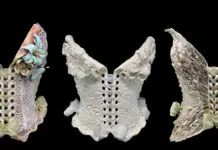Building a career, finding a partner, starting a family and building a life keep the 25-to-40-year-old set fairly occupied. Time is tight, and getting involved or networking outside of activities that are generally related to these ends is often difficult, even for the most ambitious.
Ten years ago, though, a group of ambitious young professionals working in downtown Oklahoma City recruited their peers from different industries and companies and got together for lunch. The idea was to connect young professionals in Oklahoma City, find out what issues were affecting the community and, they hoped, to inform one another and impact the future of Oklahoma City. The group would become the Downtown Club of Oklahoma City.
“Our goal was to pull together the potential leaders of Oklahoma City,” says Brad Knowles, president of Downtown Club of Oklahoma City and owner of RBK Capitol.
Knowles has been a member of the group since it began and has seen it grow to the club’s capped membership of 75.
“We aren’t trying to be exclusive, but we don’t want to be so big that people can’t know each other,” says Knowles.
The group also tries to mirror in its membership the business landscape of Oklahoma City by limiting the number of members from each industry and company.
This casts a web of connections across the city that affords the club the opportunity to bring in an impressive lineup of guests to speak at their monthly meeting.
It didn’t hurt that among the founders of the organization were well-connected young professionals who were part of powerful political families in the city.
“They had better access to high-profile speakers than a guy like me,” says Ainslie Stanford, president-elect of Downtown Club of OKC.
“I saw it as a way to immediately connect with a lot of the visible young leaders in Oklahoma City and it has definitely served that purpose,” says Stanford, who is originally from Tulsa.
Jodana Borden, the vice president of resource development at the United Way, was accepted into one of the club’s few vacancies this spring through the requisite application process.
“I learn more about issues facing our community and get an awareness of things going on that I might not otherwise have known about,” she says.
To her, membership in the organization is not only to inform and better herself, but also to take back to work and the people she works with everyday the knowledge and connections that she has gained through her involvement.
The purpose she says is “to be a better leader with that knowledge.”
And for a demographic that is decidedly busy, one lunch a month is a comfortable commitment.
“We figured that even the busiest person could carve out one lunch a month to participate,” says Knowles.

























